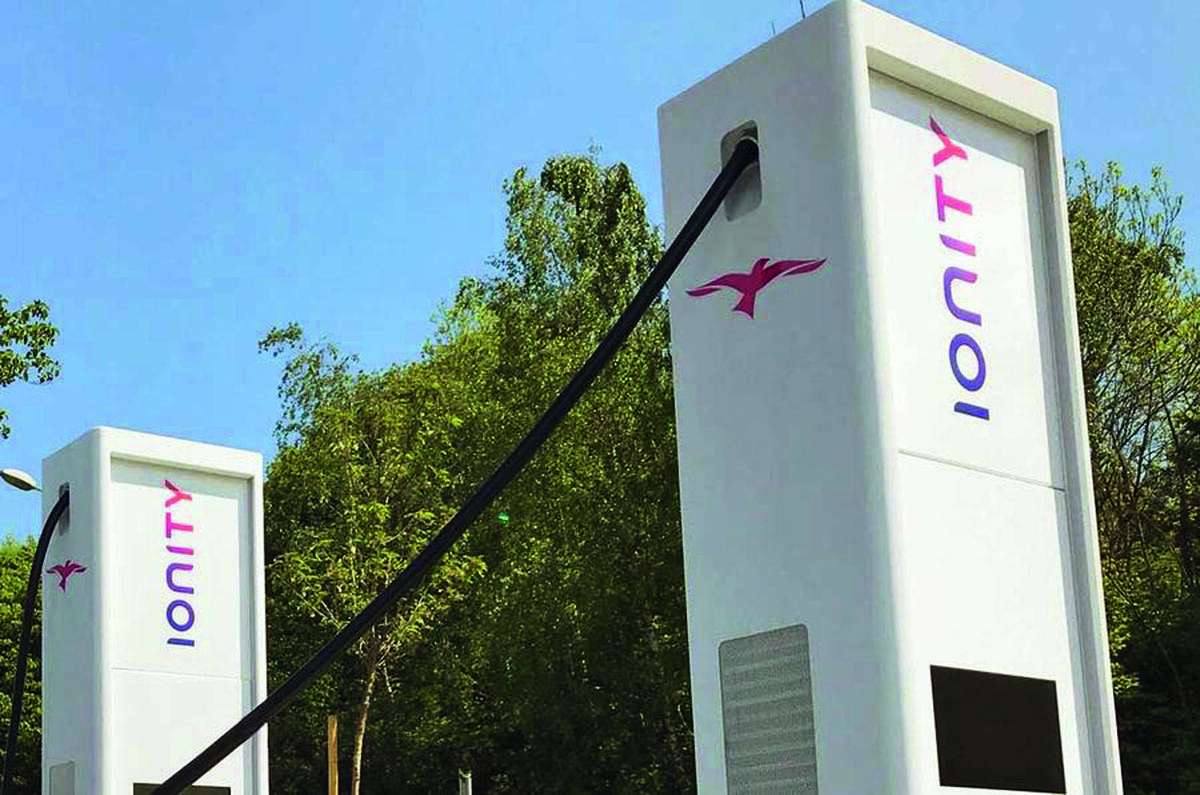The adoption of common charging and payment standards is a vital step towards the widespread take-up of EVs, according to one of the biggest makers of charging points.
Swiss-based technology firm ABB supplies equipment to a number of charging networks worldwide, including Ionity, which recently opened its first 350kW rapid-charging station in the UK.
Tarak Mehta, the boss of ABB’s electrification division, said working towards common charging standards is “a role we take very seriously”.
Mehta said that although he understands the reasons for car firms wanting to gain an edge with their own systems and infrastructure projects, this complicates the situation.
“With the nature of politics, the way the automotive OEMs [original equipment manufacturers] feel about themselves lends itself to not having too many common standards,” said Mehta. “The infrastructure is proportional to the [number of] standards, so one standard versus two has a substantial impact on the cost of infrastructure you need in any one geography.
“On the commercial vehicle side, we see a far more collaborative evolution. On the automotive side, let’s put it this way: it’s a bit more challenging. The good news is that, so far, in any one geography, we’re down to one or two standards, and that’s probably good enough.”
Although there has been a move towards a common charging plug design, EV owners still face the need to sign up with several companies in order to use a variety of charging points.
“The biggest issue [on the payment side] is data,” said Mehta. “Convergence could happen very quickly if there was an agreed data-sharing model, because a lot of data that comes with EV charging has value. Getting that data shared is a bigger issue than getting credit cards working [across different accounts] and having it standardised might take some regulatory effort.”
Read more
Volkswagen-backed firm opens high-power UK charging station
UK government doubles investment in residential charging point scheme
Electric chargers should offer card payment by 2020








Join the debate
Add your comment
The customer comes second.
Why should you expect this government to do anything. It will leave it to private enterprise to make it work and private enterprise will only make it work only if there is enough profit in it. How can one manufacturer manage to build a glut of chargers around the country which far exceed the actual demand from their cars, whilst the other major manufacturers are happy to sell us expensive cars that they will not support by building charging infrastructure. Your recent group test of luxury EV's prooved this. I don't expect this to change much as car manufacturers can't even meet the demand for vehicles yet. 12 month plusw waitinglists are a joke.
The customer comes second.
Why should you expect this government to do anything. It will leave it to private enterprise to make it work and private enterprise will only make it work only if there is enough profit in it. How can one manufacturer manage to build a glut of chargers around the country which far exceed the actual demand from their cars, whilst the other major manufacturers are happy to sell us expensive cars that they will not support by building charging infrastructure. Your recent group test of luxury EV's prooved this. I don't expect this to change much as car manufacturers can't even meet the demand for vehicles yet. 12 month plusw waitinglists are a joke.
The customer comes second.
Why should you expect this government to do anything. It will leave it to private enterprise to make it work and private enterprise will only make it work only if there is enough profit in it. How can one manufacturer manage to build a glut of chargers around the country which far exceed the actual demand from their cars, whilst the other major manufacturers are happy to sell us expensive cars that they will not support by building charging infrastructure. Your recent group test of luxury EV's prooved this. I don't expect this to change much as car manufacturers can't even meet the demand for vehicles yet. 12 month plusw waitinglists are a joke.